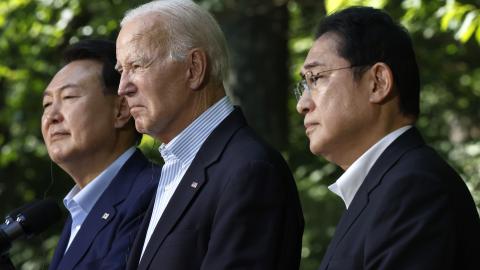Are we in a new Cold War, and if so, who is winning?
As policy makers wrestle with the consequences of the sharpening geopolitical rivalry between the U.S. and its allies and partners on the one hand and the Sino-Russian-Iranian axis on the other, there is not a lot of consensus about the nature of the conflict. For some, we are engaged in a new Cold War. Others warn that the current situation is so different from the long struggle with the Soviet Union that the Cold War label doesn’t fit.
This is a tempest in a teapot. Call it Cold War II, call it a global Game of Thrones, call it a new era of geopolitical competition. Whatever we call this thing, our goal must be the same that we had in the Cold War: to preserve the American way of life and the security of our allies without triggering nuclear war. But the world situation is more complicated today than it was in 1948, and the U.S. and China have economic ties that we never had with the Soviet Union. Our approach to the contest will have to take these complexities into account. Competition over resources like rare-earth metals, competition in cutting-edge technologies, competition in space, alliance building, military power projection—these are all part of the larger struggle.




















